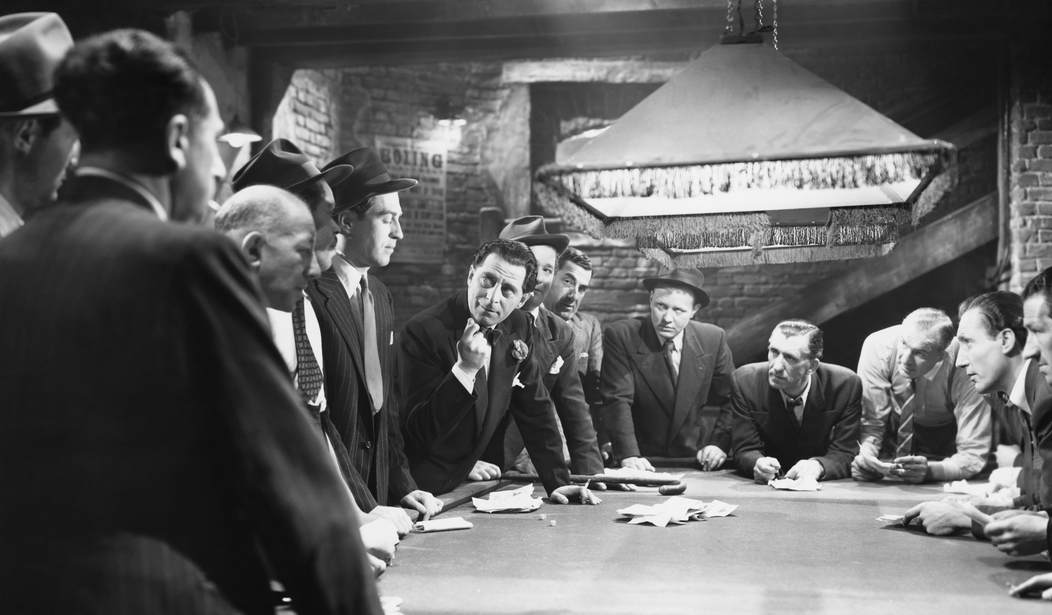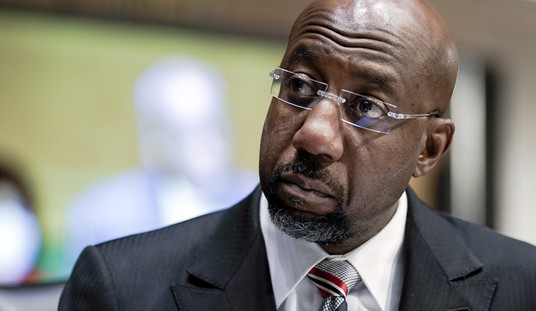It’s surprising how ill-protected the communications back channels of the great and powerful are. For example, the private Hillary Clinton email server was first publicly unearthed by an unemployed Romanian taxi driver alias Guccifer. Armed with nothing but persistence, the Romanian attacked “AOL, Yahoo, Flickr and Facebook accounts” and manually traced out the the network correspondents and by following them stumbled upon the Clinton email server.
His hacking tools consisted of a desktop computer, a cellphone, an internet connection and lots of patience and persistence. He used the simple technique of finding personal information about his victims online and then using this to guess the correct answers to security questions. At the time of his arrest, Guccifer was an unemployed taxi driver … Guccifer had successfully hacked the e-mail account of former aide to president Bill Clinton, Sidney Blumenthal. He distributed private memos sent to Secretary of State Hillary Clinton involving recent events in Libya, including the September 11, 2012 Benghazi attack.
The sitting Director of the Central Intelligence Agency, David Petraeus entrusted his secret with Paula Broadwell to a back channel that was almost comically insecure. “Petraeus and Broadwell used fake names to create free webmail accounts exchanging messages without encryption tools. They would share an email account, with one saving a message in the drafts folder and the other deleting it after reading it. “The FBI, using electronic metadata that pinpointed the times, places and IP addresses, identified Paula Broadwell as the source” and conducted a security investigation that led to Petraeus’ removal.
Former French president Nicolas Sarkozy was charged with corruption in 2014 after being caught using a burner cell phone (a throwaway cell phone, often prepaid) to make a dirty deal. “Parisian investigative judges began tapping Sarkozy’s phone in 2013 as part of an probe into allegations of illegal funding by the regime of Libya’s former leader Muammar Qaddafi … Sarkozy was then found to be using a cell phone under the name of Paul Bismuth.”
None of these exalted public figures were any better protected against mass surveillance than the average Joe. Whether the sitting president of Brazil, Dilma Roussef, who trooped to the UN to denounce the NSA wiretap of her phones, or the hundreds of politicians and celebrities exposed by the Panama Papers, to the thousands of ordinary people whose pictures are stolen from social media accounts for blackmail or revenge porn, few are safe .
Ironically, the only people not worried about the collapse of privacy are authoritarians like Vladimir Putin. Putin is one of those mentioned in the Panama Papers but he’s not sweating bullets since the last whistleblower to go up against him died of polonium poisoning in a British hospital. Before he died, Alexander Litvinenko named Putin as his murderer in print. The result? Nothing. Litvinenko is still dead and Putin is still president of Russia. The Chinese took a lesson from the Russian playbook “pursuing critics, China reaches across borders,” the Washington Post writes. The Chinese regime is kidnapping dissidents in the streets of foreign countries says “and nobody is stopping it.”
Nobody dares. How could they when the Russians and Chinese can ruin the reputation of a Western politician by blackmail? In the days before the information age and its byproduct, mass surveillance was a trademark of the Eastern bloc. Everyone who was anyone could assume he had a dossier. It was in the West where people were free of such things. They had anonymity, places they could go without papers. Today everyone in the West has a dossier compiled by Google, social media and their own phones. Moreover they’ve agreed to it.
Commercial mass surveillance often makes use of copyright laws and “user agreements” to obtain (typically uninformed) ‘consent’ to surveillance from consumers who use their software or other related materials. This allows gathering of information which would be technically illegal if performed by government agencies. This data is then often shared with government agencies – thereby – in practice – defeating the purpose of such privacy protections.
Data knows where you’ve gone, what you buy, what you eat, what you say. With artificial intelligence it can even deduce if you have a gun and how many rounds of ammunition you’ve stocked. Twitter, for example, has been providing US government intelligence with every Tweet ever made on the planet. The tech revolution has in a fit of absentmindedness removed all obstacles to surveillance except the one tyrants have: the the absence of consequences. What protects 21st century tyrants from political exposure is legal impunity.
It is a power that Western politicians are beginning to envy and emulate. In the Clinton email server saga, the defense has disturbingly evolved from “I never sent or received classified email from my private server” to “I never sent or received email marked as classified at the time they were sent” to ‘nobody can jail me because I am too powerful’. Former New Jersey Superior Court Judge Andrew Napolitano argued on television that while “the evidence of her guilt is overwhelming … there is not even the remotest chance that is going to happen.” The real mark of privilege today is not that they don’t know but you don’t care.
If mass surveillance has destroyed privacy even among elite politicians the vital unasked question is how much of democracy and liberty was destroyed along with it. Sean Larkin at Foreign Policy takes the view that the more transparency — the more surveillance –the better. He writes that “increased transparency will allow people at home and abroad to better observe and critique what governments do and to hold leaders accountable for their decisions. As a result, governments will find it harder to adopt strategies that require secrecy or violate international norms.” Except that any technology good enough to follow Hillary is good enough to follow you. Since any ordinary person would go to jail for things that Clinton would never sweat such transparency is a one-edged sword.
The reason why the Fourth Amendment played such an important role is that privacy was somehow necessary for a democracy to exist, the secret ballot being the most obvious example. As Richard Stallman observed there is an “upper limit on surveillance” that a democracy can withstand. Beyond that point a series of perverse incentives begins to drive the system in the direction of tyranny, since that is where all the advantages for leaders lie.
A working democracy may need the political equivalent of a dual-SIM cell phone which permits two channels of communication, one of them protected by technically unbreakable encryption, inaccessible without a court order, to keep a healthy level of secret ferment in play. The most disturbing aspect of the Hillary email affair is that it began with a Romanian taxi driver too dumb to know better. Today, ISIS is using tech to find its targets; former US servicemen, Muslim apostates, Bangdladeshi atheist bloggers. Perhaps we would be better off in the net even if we knew less about terrorists and politicians if they also knew less about us.
Constitutional scholar Orin Kerr thinks that neither secrecy nor transparency should be allowed to totally dominate over the other. He argues that a Goldilocks “just right condition” was envisioned by the Fourth Amendment to balance the interests of privacy and order; that when technology periodically throws it out of kilter society must restore the balance. Kerr wrote:
This Article introduces a new theory that explains and justifies both the structure and content of Fourth Amendment rules: the theory of equilibrium adjustment. The theory of equilibrium-adjustment posits that the Supreme Court adjusts the scope of Fourth Amendment protection in response to new facts in order to restore the status quo level of protection. When changing technology or social practice expands government power, the Supreme Court tightens Fourth Amendment protection; when it threatens government power, the Supreme Court loosens constitutional protection.
Now may be one of those times. In an excessively surveilled society it is the shameless who can embarrass the easily shamed; just as in a perfect disarmed society only the criminals have guns. Today Putin is free to blackmail anybody while remaining invulnerable himself, just the Western politically correct can routinely vilify anyone without having to uphold any standard for themselves. At the extremes the outcomes are malign.
A society where people are allowed some secrets as a right may not seem ideal, yet be the most feasible of all possible worlds. There should be some arrangement at any rate, where citizens and officials can conspire to a degree, without having to lie completely on the record, if that’s the only way liberty can be preserved. Or else as Judge Napolitano believes, Hillary will never be indicted anyway and society will have paid a very high price for something it is in the process of giving away.
Follow Wretchard on Twitter.
Recently purchased by readers:
Samsung UE590 UHD-QHD Monitor U28E590D 28-Inch Screen LED-Lit Monitor
InForce Multifunction Weapon Mounted Light, White and Infrared LED, 200 Lumens, Flat INF-WML-F-WIR
Anolon Advanced Bronze Nonstick 9-Piece Cookware Set with 2-Piece Bakeware Bonus
Nike Metcon 2 Cross Training Shoes 819899-400
Recommended:
The Hunter Killers: The Extraordinary Story of the First Wild Weasels, the Band of Maverick Aviators Who Flew the Most Dangerous Missions of the Vietnam War
Did you know that you can purchase some of these books and pamphlets by Richard Fernandez and share them with your friends? They will receive a link in their email and it will automatically give them access to a Kindle reader on their smartphone, computer or even as a web-readable document.
The War of the Words, Understanding the crisis of the early 21st century in terms of information corruption in the financial, security and political spheres
Rebranding Christianity, or why the truth shall make you free
The Three Conjectures, reflections on terrorism and the nuclear age
Storming the Castle, why government should get small
No Way In at Amazon Kindle. Fiction. A flight into peril, flashbacks to underground action.
Storm Over the South China Sea, how China is restarting history in the Pacific
Tip Jar or Subscribe or Unsubscribe to the Belmont Club










Join the conversation as a VIP Member